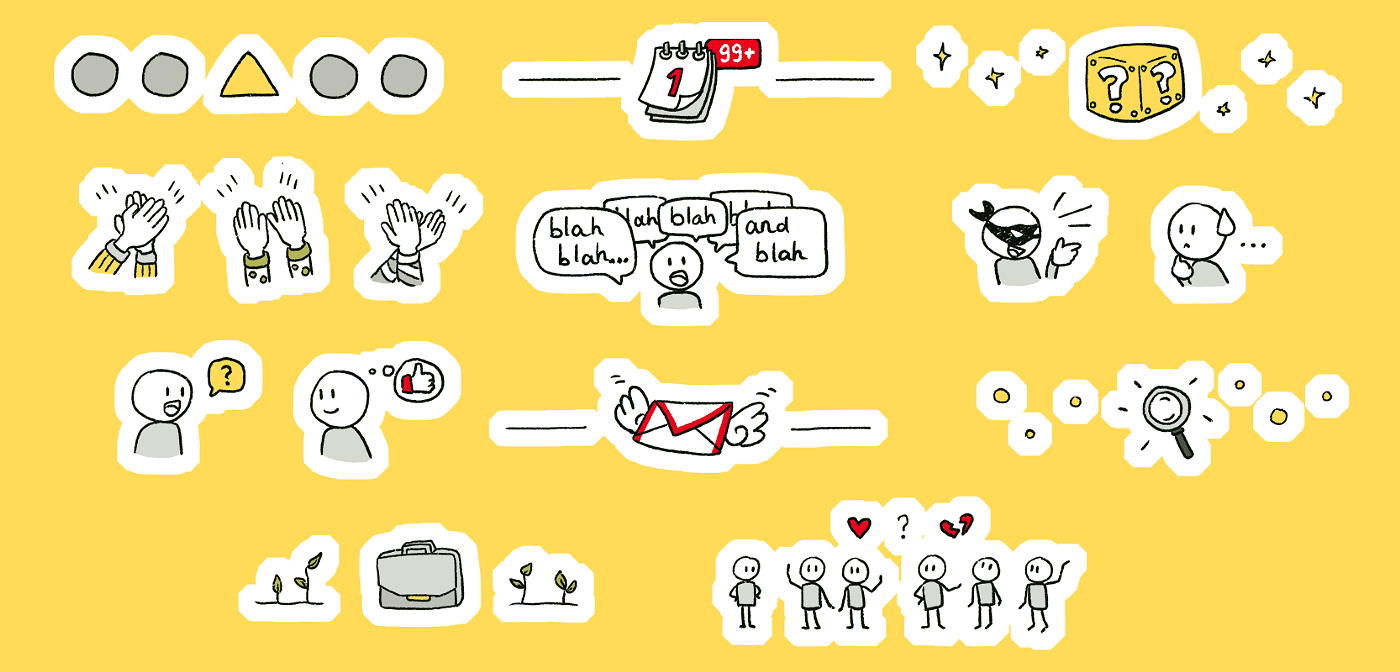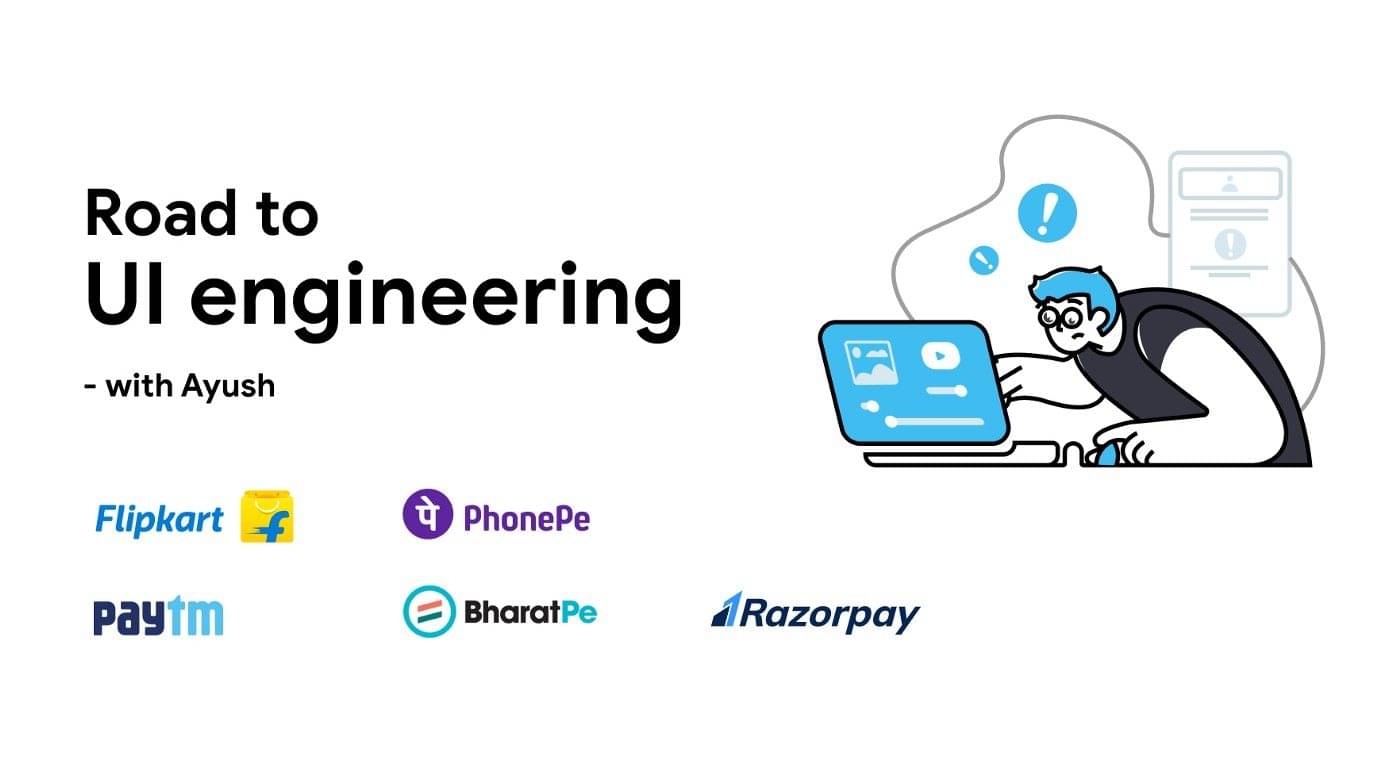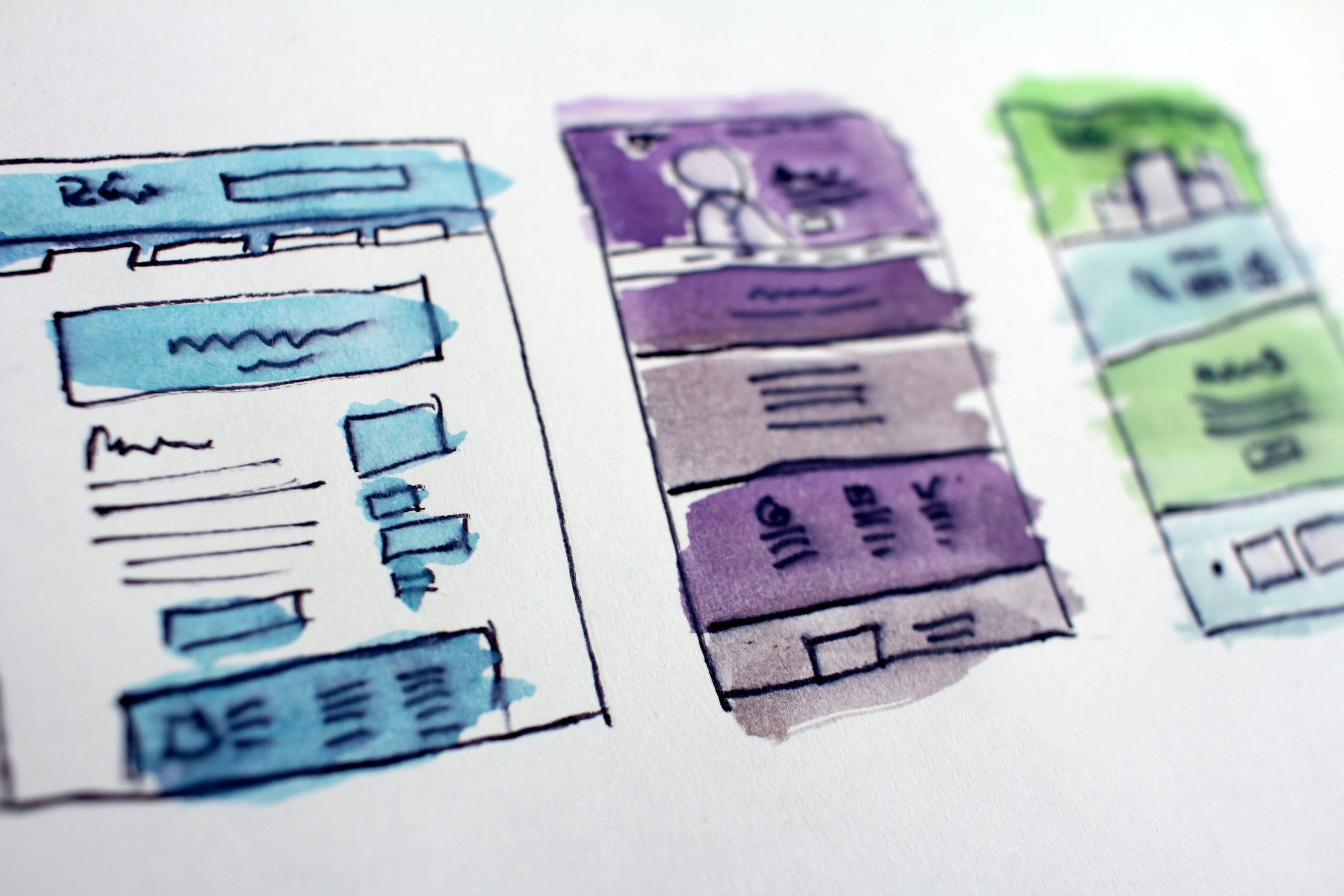What nobody told me about the ‘Etiquette’
Recently I’ve been interviewing a lot of junior UX designers for roles in London and Paris. Some are clearly ‘in the know’ — I can tell that they’ve been coached by their family, school, or network. Others are quite clueless about how to get hired.
I totally relate to this second group of people. I started my career not in tech but in investment banking, and I also had a lot of the same misconceptions.
Here are 11 lessons, from over 10 years of reflection and interviewing 🙌!

Note: this originated as a thread on Twitter. Here I’m expanding a little more on each bit.

1. You don’t get hired because you are ‘passionate’

I’ve never met any candidate in tech who said they are not passionate about what they are applying for. Yes, you can be passionate, but don’t spend your precious interview time on truisms like “I love X”, “I work hard” and “I have empathy”. Find something unique to your skills and experiences. Talk about things that can not be claimed by 80% of the candidates.
If you do want to insist for example on our strong work ethics, back it immediately with a short but relevant example. It should be personal. Again, not something that 80% of the candidates can say.
👉 Once you’ve made it to the interview stage, you have to focus on what makes you different. This will make your application more memorable.

2. Timing is the biggest factor in a hire

Most teams open roles during specific windows of time and stop the process as soon as they find someone who meets their criteria.
I used to keep my most important applications for the week-ends, to properly ‘focus’ on them. Unfortunately, while I was wasting hours compiling the perfect cover letter and waiting for the perfect timing, recruiters’ inboxes were filling up with other candidates’ applications. By applying later, I was queued to the bottom of the list.
👉 Unless someone approaches you directly, the reality is that nobody will wait for you. Do not leave your application for later.

3. Some channels work better than others, with different gatekeepers

Different teams have different ways of hiring, but some leads often work better than others. Here’s the order of effectiveness, from my experience:
- 1st-degree and 2nd-degree network: direct connections or referrals always work better. You may still be asked to apply via another channel (companies do this for fair chance policies), but this starts building a connection with your interviewers.
- Team’s website or social media accounts: you’re almost 100% sure to be interacting with people directly from the team, not external recruiters or communication officers.
- Companies’ career website: these are usually well integrated with the internal recruitment system, so consider going through the hassles of creating an account there.
- LinkedIn job area and job boards: these are usually advertised last.
👉 It’s okay to duplicate your applications on several of these channels. You will get more screening chances.

4. Hard skills are overrated

Yes, they are important, but… how much time do you spend preparing for behavioral questions versus technical questions? The chance is that this ratio is unbalanced.
At the end of the day, people will be deciding if they want to spend up to 8 hours a day with you and if they can trust you. Most teams who are serious about their employees will be willing to train you if you lack some of the technical skills. This is less true if you fall short on soft skills.
👉 Try to build a strong connection with some of your interviewers. Maybe they’ll stand up for you if there are several candidates to choose from at the end of the process.

5. Pause. But be mindful of cultural differences

Don’t rush. Ask for time if you need to think about an unusual question. It proves that you are able to pause and organize your thoughts, that you don’t jump straight to conclusions. This gives you time to add as much structure as possible in your answers. Or avoid overloading them with every detail of a story. Under stress, it’s quite easy to go off tangent or fall into TMI (Too Much Information).
Pausing also allows the interviewers to ask follow-up questions. But mindful of cultural differences here. What is considered length normal in turn-taking pauses vary depending on your language. For example, French has shorter pause lengths (3/10s), which is why we can sometimes sound impolite to British or American people (5/10s, ref. in French here and here.)
👉 Silence can be intimidating but it gives openings to the interviewers to react and engage in a real conversation. Having an organic discussion is a better interview experience for everyone.

6. Don’t fake it

Admit when you don’t know something or are unsure of your answer. Don’t pretend to know everything, or to know your interviewer’s job better than themselves! As a junior candidate, you can’t be expected to know everything.
Pushing you to the limits of what you know may be part of the interview. I realized only several years later that is was the reason why some of my interviewers kept asking follow-up questions until I could no longer answer. It was to see how I’d face a situation where my knowledge is limited.
👉 Being able to recognize when it’s time to ask for input or help makes you more trustable. Be self-aware.

7. Your questions are part of the interview

You may be shy or think (like me back then) that you’re going to bother the interviewers by asking questions. Or that you have no leverage anyway. But skipping this part can make you seem unprepared or disinterested.
There’s a balance to achieve though. If you sound too prepared, you’ll give the impression that you are reading questions off a list, which is counter-productive as your questions might sound insincere. I would also not recommend putting your interviewer on the spot with tricky questions, like: “Is there anything that prevents you from hiring me?” — especially when you are in the early phases of the process.
👉 Show people that you are interested but avoid sounding fake. Ask questions in relation to what was said previously in the interview. This will prove your active listening skills.

8. Your follow-up emails are also part of the interview

Afraid of annoying your interviewers? Then keep it short. It will leave a positive impression and can even bump your application to the shortlist.
I can confirm this because this is what happened to a candidate recently. The candidate was not initially selected but sent a great follow-up email, updating us on the additional work she put into her design portfolio. This convinced us to shortlist her.
👉 In all cases, being courteous won’t harm your application.

9. All details matter

Spelling mistakes in your application. Getting people’s names right. The cleanliness of your desktop during a screen share. Your clothes. Your background environment.
Individually each of them isn’t a big deal but they are like dissonant notes. Too many in a melody and they impact the whole set negatively.
On this note (no pun intended!), if you realize during the interview that you made one of these faux-pas, just apologize quickly. Don’t try to justify yourself as it can make things worse.
For example, I like to ask candidates which teammates they’ve met in the previous rounds. A short apology like “I’m so sorry I don’t remember the name” is way better than an “I’m sorry I don’t remember the name, because it was a weird name.”
👉 Don’t give people any chance to wander off or lose track.

10. Having too much experience can work against you

Many orgs (especially big ones) have guidelines on who can qualify as a junior applicant, like having less than 2 years of experience. That’s a sad truth, especially for people who’ve been transitioning into UX or tech.
If that’s your case, here’s how you can play it:
- First, don’t conceal your previous experiences, but keep it in a separate section in your portfolio. You will have fewer projects to show than people with 3 to 5 years’ worth of academic projects, so be transparent about it.
- Secondly, use your background to differentiate yourself (cf. my first point!). In merchandising before? Mention your knowledge of retail customers. Launched a business previously? Mention how you can connect your business knowledge with your design practice, etc.
👉 Own your story and career path. It’s all about the narrative.

11. Every org has dysfunctional teams

Management is difficult: we wouldn’t have so many books and articles on it otherwise. A great solo contributor can be terrible at managing a group of people — this is why team drama often happens when companies grow in size.
The team’s context is also important: is the team respected? in a favorable business environment? A friend and I started our careers doing similar jobs but in 2 different companies. Her business context quickly deteriorated and the team imploded, leaving her sour memories of her first job. I, on the other hand, was lucky to join a team with a lot of work to do and a strong camaraderie mindset. It could have been the reverse. Back then we were so eager to find our first jobs, that we never questioned what they might actually be like.
👉 Choose your team wisely. It matters as much or even more than the company’s name. Watch out for red flags such as a high-turnover rate or disengaged interviewers.

Wrapping up! 🌱
- You don’t get hired because you are ‘passionate’
- Timing is the biggest factor in a hire
- Some channels work better than others, with different gatekeepers
- Hard skills are overrated
- Pause. But be mindful of cultural differences
- Don’t fake it
- Your questions are part of the interview
- Your follow-up emails are also part of the interview
- All details matter
- Having too much experience can work against you
- Every org has dysfunctional teams
I hope this list has been insightful and even debunked some misconceptions. If you’re currently job hunting, I wish you good luck 💪
This article was originally published here.






